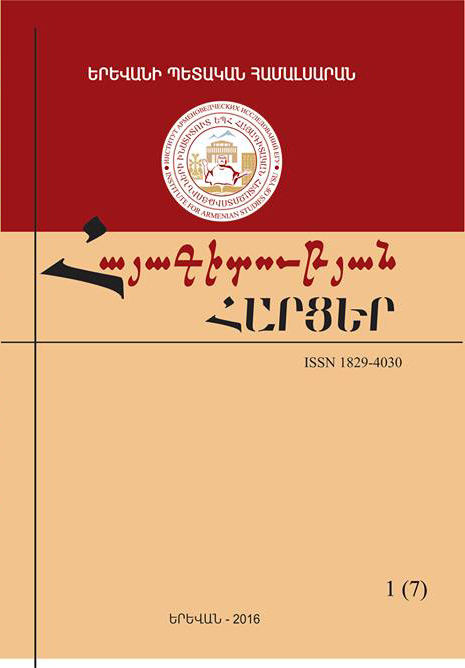Ճակատագրապաշտության և առասպելների համադրումը Օրհան Փամուքի «Կարմիր մազերով կինը» վեպում
Abstract
The topic of the relationship between fathers and sons or master and students is widely spread in eastern literature, especially the topic’s religious variation with Masters (Myurshid) and students (myurid). Famous Turkish author, Nobel Prize winner, Orhan Pamuk (born in 1952), uses this theme in a number of his novels, trying to envision it as a problem of desire and attainment of perfection. Being postmodern author and advocating for the development of a different component of this direction, Pamuk used this idea of the search for perfection as the basis of his novels, which mostly concentrates on the hero’s identity and myurid. In the postmodern works, the theme of fatalism is also discussed to some extent.
The last Novel written by Pamuk and published in 2016 is entitled “The Red-Haired Woman” and is dedicated to the search of one’s identity accompanied with fatalism. Nevertheless, Pamuk views the theme of the search for this work in the context of the combination of the classic and popular eastern myth of Rostam and Sohrab’s components and western tragedy by Sophocles Oedipus the King, by transforming the existing motives in the works.

